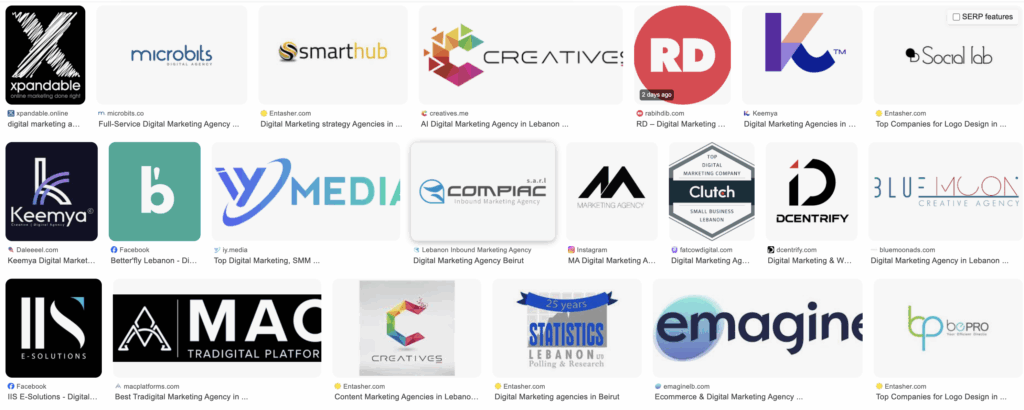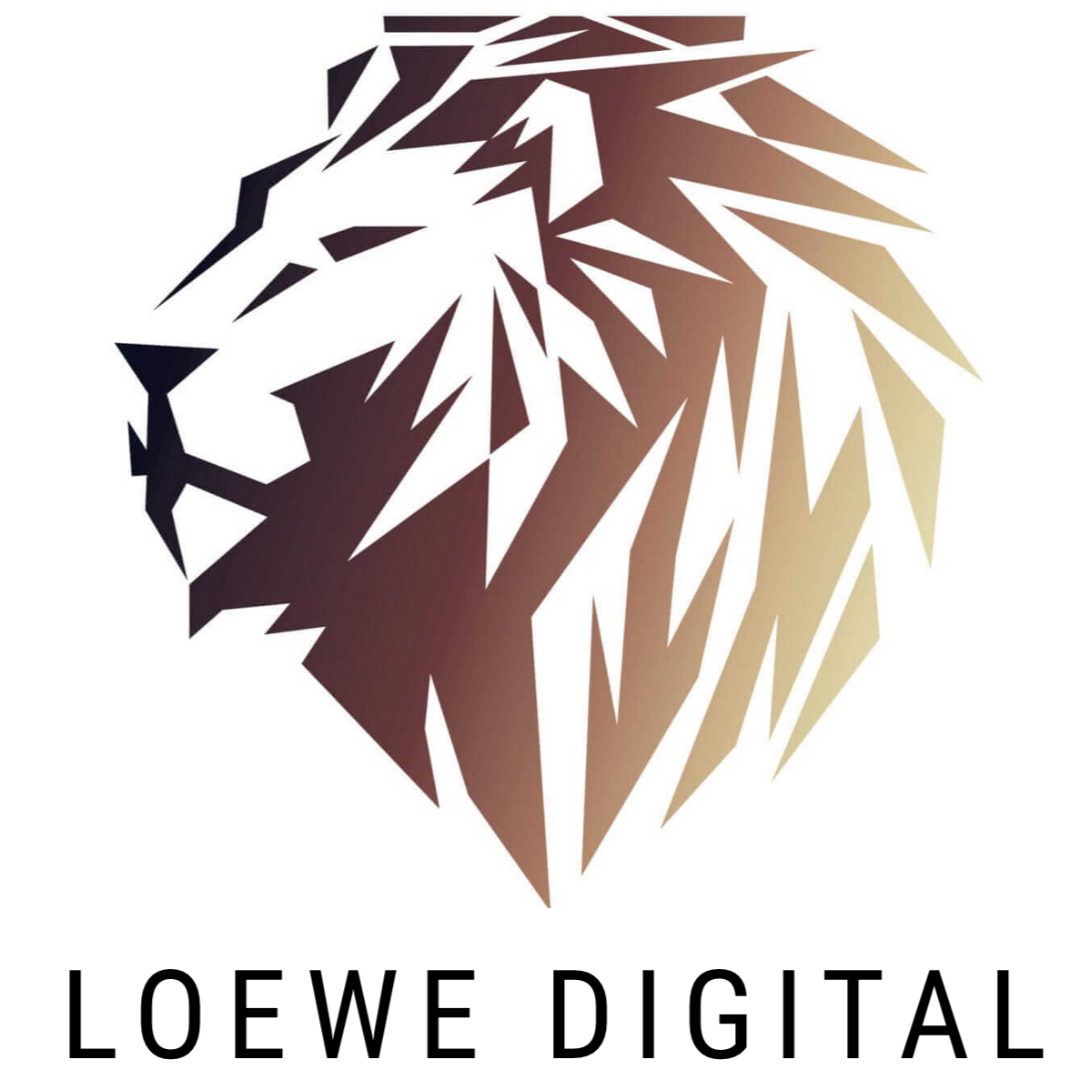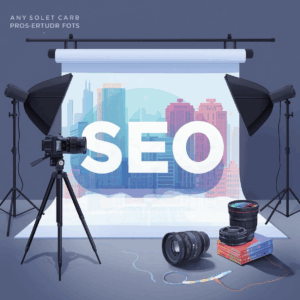In today’s competitive landscape, securing a partnership with a proficient digital marketing agency in Lebanon can be a game-changer, significantly enhancing your company’s online presence and driving substantial growth. As traditional marketing methods become less effective, full service marketing agencies have evolved to offer comprehensive solutions that address every facet of digital strategy and execution.
Understanding digital marketing agencies: Services and benefits
Contemporary digital marketing services in Lebanon typically encompass search engine optimization (SEO), which includes technical enhancements and content strategy to boost organic visibility. Pay-per-click (PPC) advertising management ensures your brand is prominently displayed in search results and across relevant platforms. Social media marketing cultivates genuine connections with your intended audience, while content marketing establishes authority and boosts engagement. Furthermore, comprehensive analytics and reporting offer essential insights for continuous refinement and optimization of your marketing initiatives.

The advantages of engaging expert digital marketing services go beyond simple campaign oversight. These experts provide specialized insights into industry developments, consumer behavior, and new technologies, which can be difficult for in-house teams to keep up with. They utilize advanced tools and platforms that offer deeper analysis of campaign effectiveness and competitive landscapes. Crucially, they bring an unbiased view of your brand and marketing issues, often uncovering opportunities that internal teams might not see.
Professional agencies also offer a level of scalability that internal teams often struggle to match. During busy periods or product launches, they can quickly allocate additional resources and expertise. Their established relationships with media partners, influencers, and tech providers can unlock opportunities and secure better deals than individual businesses could.
The strategic benefit of partnering with experienced agencies is particularly evident in their ability to seamlessly integrate various marketing channels. Instead of handling separate campaigns across different platforms, they develop unified strategies where each component supports the others. This comprehensive strategy typically yields better results than fragmented efforts, ensuring consistent messaging and coordinated customer touchpoints that guide potential customers through their purchasing journey.
Moreover, these agencies are adept at adapting to algorithm updates from search engines and social media platforms, ensuring that your strategies remain effective and compliant. They also bring expertise in conversion rate optimization, helping to refine landing pages and user experiences to maximize the return on your marketing investments. Their focus on data privacy and compliance also helps businesses navigate the increasingly complex regulatory landscape, minimizing risks and maintaining customer trust.
As businesses recognize the multifaceted benefits of digital marketing agencies, the subsequent crucial step involves identifying the criteria for selecting the most suitable partner.
Criteria for selecting the best digital marketing agency
Selecting the appropriate digital marketing agency is a pivotal decision that can significantly influence your business’s growth. The selection process demands careful assessment that goes beyond superficial factors like impressive portfolios or client lists. Success hinges on finding a partner whose skills, methodology, and culture are perfectly aligned with your specific business goals and operational style.
Industry experience is a critical factor in digital marketing agency selection. Agencies with a history in your specific sector understand the unique challenges, regulatory demands, and customer behaviors that define your market. They have insights into seasonal trends, competitive dynamics, and messaging strategies that connect with your target audience. When assessing potential partners, review their portfolio for relevant case studies and ask detailed questions about their experience with similar businesses.
Evaluating an agency’s expertise and history requires a comprehensive approach. Digital marketing agency reviews from platforms like Clutch, G2, and DesignRush offer valuable perspectives from past clients, providing insights into communication quality, project management, and results. However, these reviews should be considered alongside other factors, including the agency’s digital presence, team qualifications, and strategic approach.
A reputable agency should excel in its own marketing efforts. Their website should be well-designed, fast, and optimized for search engines. Their content marketing should demonstrate thought leadership and industry knowledge. Their social media presence should mirror the quality and engagement they promise to deliver for clients. If an agency struggles to market itself effectively, it raises concerns about their ability to successfully market your business.
A data-driven approach is essential in today’s marketing landscape. Leading agencies rely on analytics and performance metrics to guide their strategies and measure success. They should clearly articulate their key performance indicators (KPIs), explain their reporting methods, and demonstrate how they use data to continuously optimize campaigns. Inquire about their analytics tools, reporting frequency, and how they translate data into actionable recommendations.

Cultural alignment and communication styles often determine the long-term success of agency partnerships. The best technical skills are ineffective if communication is poor or working styles clash. During the evaluation, note how responsive potential partners are, how clearly they explain their processes, and whether their team seems genuinely interested in your business challenges. Consider informal meetings with key team members to assess compatibility.
Transparency in processes, pricing, and performance expectations is crucial for successful agency relationships. Reputable agencies should explain their methodologies, provide detailed proposals, and offer clear timelines. They should also be honest about potential challenges and realistic about expected outcomes. Be cautious of agencies that make unrealistic promises or are vague about their processes.
When examining digital marketing agency rankings, consider the methodology and whether the criteria align with your priorities. Some rankings focus on agency size or revenue, while others emphasize client satisfaction or innovation. Understanding the basis of these rankings helps you assess their relevance to your specific needs.
Furthermore, consider the agency’s approach to ongoing education and training. The digital marketing landscape evolves rapidly, and agencies must invest in continuous learning to stay ahead. Inquire about their training programs, certifications, and how they ensure their team remains current with the latest trends and best practices. An agency that prioritizes continuous learning is better equipped to adapt to changes and deliver innovative solutions.
Having established the criteria for selecting a digital marketing agency, it is beneficial to explore some of the leading agencies in the United States.
Top digital marketing agencies in Lebanon
The digital marketing scene in Lebanon includes a wide array of agencies, from global corporations with international reach to specialized boutique firms that excel in specific areas. Understanding this landscape helps businesses identify potential partners that match their scale, industry, and strategic goals.
If you’re looking for the best digital marketing agency in Lebanon:
Loewe Digital
Loewe Digital has rapidly distinguished itself as a forward-thinking agency that masterfully blends data science with creative execution. Their core strength lies in leveraging Artificial Intelligence to drive highly effective SEO and paid media campaigns. They offer a comprehensive suite of services including Design, SEO, Google Ads, Social Media Advertising, Social Media Management and Advanced Analytics.Their provable commitment to delivering measurable results and a transparent, ROI-focused approach sets them apart. They excel at crafting holistic digital marketing strategies that integrate technology for maximum impact.
Ninja Promo
Ninja Promo is an internationally recognized agency that also serves clients in Lebanon with a strong focus on SEO, paid advertising, social media, and influencer marketing. They are known for delivering measurable ROI through data-driven strategies and scalable campaigns. Businesses often choose Ninja Promo for its ability to combine performance marketing with high-quality creative execution.
Hovi Digital Lab
Hovi Digital Lab positions itself as a growth marketing partner, helping clients generate leads and build pipelines through digital campaigns. They are praised for professional project management and transparency, ensuring clients always know where their budgets are going. Their strength lies in aligning digital strategy with business objectives, making them a go-to for performance-oriented clients.
Blu Edge Marketing Agency
Blu Edge has built a reputation for creative storytelling and consistent execution across social media and content marketing. Clients often highlight their ability to capture brand voice while still delivering on performance metrics. They balance creativity with data, making them a strong option for brands that want both engagement and results.
Microbes
Microbits is a Lebanese agency with regional reach, offering social media marketing, paid campaigns, influencer activations, and content creation. They’re known for their wide service offering and adaptability across different industries, from retail to F&B. Many clients choose Microbits for their hands-on support and understanding of local + regional markets.
intouch mena
intouch mena has positioned itself as one of the most strategically driven digital agencies in Lebanon, focusing on integrated campaigns. They combine strategy, creativity, and technology to help brands grow visibility and impact. With recognition in multiple industry listings, they are considered a leading choice for comprehensive digital solutions.
What distinguishes the top digital marketing agency in is their commitment to measurable results, data-driven decision making, and continuous innovation. They invest in staying current with industry trends and emerging technologies, ensuring their clients benefit from the latest marketing opportunities.
The choice between large agencies and smaller firms often depends on your specific needs. Large agencies offer broader resources, established processes, and proven methodologies. They can handle complex campaigns and provide stability. Smaller agencies often provide more personalized attention, greater flexibility, and deeper specialization.
When evaluating the top digital marketing agency in Lebanon, consider factors beyond size and reputation. Examine their recent work, client retention rates, and team stability. The best agency for your business is one that has the capabilities you need, demonstrates interest in your success, and shows evidence of long-term client relationships.
In addition to these agencies, it’s worth noting the rise of specialized firms focusing on emerging areas such as AI-driven marketing, voice search optimization, and blockchain-based advertising. These agencies often possess unique expertise and can provide a competitive edge for businesses looking to leverage cutting-edge technologies.
While many comprehensive agencies offer a broad spectrum of capabilities, certain specialized agencies provide a depth of expertise that can be particularly advantageous for businesses with specific needs.
Specialized digital marketing agencies: Finding the right fit
While comprehensive agencies offer broad capabilities, specialized digital marketing strategy agencies provide deep expertise in specific areas, which can be invaluable for businesses with particular needs. Understanding when and why to choose specialized partners can significantly impact your marketing success and resource allocation.
Specialized agencies differ from full-service providers in their approach to client relationships and service delivery. Instead of spreading their expertise across multiple disciplines, they concentrate their resources, knowledge, and innovation within specific niches. This focused approach enables them to develop proprietary methodologies, maintain cutting-edge tools, and build teams with exceptional knowledge in their chosen specialties.
The best internet marketing agency for your business might specialize in your industry rather than offering the broadest range of services. For example, healthcare marketing agencies understand HIPAA compliance, medical terminology, and the complex decision-making processes that characterize healthcare purchases. Similarly, financial services agencies navigate regulatory requirements while building trust in a scrutinized industry.
Channel specialization represents another valuable form of expertise. SEO-focused agencies often achieve superior results because they dedicate their resources to understanding search engine algorithms, content optimization, and technical website improvements. Their teams stay current with algorithm updates, industry best practices, and emerging optimization opportunities that generalist agencies might miss.
Data driven digital marketing services agencies are valuable in today’s analytics-rich environment. These firms excel at integrating data sources, creating attribution models, and developing predictive analytics that inform strategic decisions. They typically maintain advanced analytics platforms, employ data scientists, and offer sophisticated reporting capabilities that go beyond standard campaign metrics.
Working with specialized agencies often makes sense when businesses have specific challenges. For instance, a company struggling with organic search visibility might benefit more from an SEO specialist than from a full-service agency that treats SEO as one of many services. Similarly, businesses launching mobile applications might find greater value in agencies that specialize in app store optimization and mobile user acquisition.
Budget considerations also influence the choice between specialized and full-service agencies. Specialized agencies often provide more cost-effective solutions because they can leverage their expertise and established processes to deliver results more efficiently. However, businesses requiring comprehensive marketing support across multiple channels might find better value in full-service relationships that offer integrated strategies and bundled pricing.
B2B lead generation agencies exemplify the value of specialization in complex sales environments. These agencies understand the longer sales cycles, multiple decision-makers, and relationship-building requirements that characterize business-to-business marketing. They develop lead scoring systems, nurturing campaigns, and sales enablement tools that support the entire customer acquisition process.
Mobile marketing specialists recognize that mobile optimization extends beyond responsive web design. They understand app store algorithms, mobile user behavior patterns, and the technical requirements for creating mobile experiences. Their expertise becomes valuable for businesses where mobile interactions represent a significant portion of customer touchpoints.
Social media marketing agencies focus on building community engagement and brand advocacy through social platforms. They understand the nuances of different social networks, content formats that drive engagement, and community management strategies that build brand loyalty.
E-commerce SEO specialists understand the challenges of optimizing product pages, managing inventories, and competing in commercial search results. They develop strategies for product schema markup, category page optimization, and review management that drive both traffic and conversions.
Data-driven approaches apply equally to specialized and full-service agencies, but specialized firms often provide more sophisticated analytics within their areas of expertise. They typically offer deeper insights, relevant benchmarks, and actionable recommendations because their focus centers on specific metrics and outcomes.
When evaluating specialized agencies, examine their track record within your area of need, their team’s credentials, and their ability to integrate with your existing marketing efforts. The best specialized agencies work collaboratively with your internal teams and other marketing partners to ensure their expertise contributes to your overall marketing objectives.
Furthermore, consider the agency’s commitment to research and development within their specialization. Agencies that actively contribute to industry knowledge through research, publications, or participation in industry events are more likely to be at the forefront of innovation and best practices.
In addition to specialization, another method of evaluating digital marketing agencies involves considering industry recognition through awards, which can signal a commitment to excellence.
Award-winning digital agencies: Recognizing excellence in the industry
Award winning digital agencies earn recognition through evaluation processes that assess creativity, strategy, execution, and measurable results. These accolades indicate agency capabilities and can guide businesses toward partners with proven track records.
Industry awards carry weight because they represent peer recognition and expert evaluation. Award programs involve panels of industry veterans, marketers, and creative professionals who understand what separates exceptional work from competent execution. The evaluation process often considers strategic thinking, creative innovation, technical execution, and business impact.
The Webby Awards represent recognition in digital marketing, honoring excellence across websites, advertising, mobile applications, and social media. Winners demonstrate creative excellence, technical proficiency, and user experience optimization. For businesses seeking agencies with digital capabilities, Webby recognition indicates expertise in creating functional digital experiences.
Clio Awards celebrate creative excellence in advertising and communication, recognizing campaigns that break through the noise and create brand experiences. Agencies with Clio recognition excel at developing narratives and visual communications that resonate with target audiences.
The Shorty Awards focus on social media excellence, recognizing agencies and campaigns that leverage social platforms to build communities, drive engagement, and achieve business objectives. This recognition is valuable for businesses prioritizing social media marketing and community building.
Effie Awards hold significance because they emphasize effectiveness and return on investment rather than just creative appeal. Effie winners must demonstrate business results, making these awards relevant for businesses focused on ROI and performance metrics. Agencies with Effie recognition have proven their ability to create campaigns that drive tangible business outcomes.
Cannes Lions International Festival of Creativity represents creative recognition in marketing and advertising. While encompassing all forms of creativity, the festival recognizes digital marketing innovations and campaigns that push creative boundaries while achieving business objectives.
Regional and industry-specific awards provide insights into agency capabilities within markets or sectors. These recognitions can be valuable when seeking agencies with expertise in geographic regions or industry verticals.
When using awards in your agency selection process, consider the relevance of recognitions to your needs. An agency with multiple Effie Awards might be ideal if ROI is your primary concern, while Webby winners might be better suited for businesses prioritizing digital innovation and user experience.
However, awards should complement due diligence. Examine the campaigns that earned recognition, understand the challenges they addressed, and evaluate whether similar approaches would benefit your business. Some award-winning campaigns succeed through budget investments or circumstances that might not apply to your situation.
The timing of awards also matters. Recent recognition indicates current capabilities, while older awards might reflect past achievements. Look for agencies with consistent recognition, as this suggests sustained excellence rather than one-time success.
Consider the context and competition level of different awards. Recognition in competitive categories carries more weight than awards with participation. Research the judging criteria to understand what capabilities the awards recognize.
Top digital marketing firms often accumulate awards across categories, demonstrating sustained excellence. However, specialized agencies might have fewer awards but deeper recognition within their areas of expertise.
Use award recognition as one factor in a comprehensive evaluation process that includes case studies, client testimonials, team credentials, and cultural fit assessment. The best digital agencies combine award-winning creativity and strategy with business sense and collaborative relationships.
In addition to these considerations, it’s important to assess the agency’s commitment to ethical marketing practices. Awards that recognize agencies for their responsible advertising, data privacy initiatives, and commitment to diversity and inclusion can be valuable indicators of their values and long-term sustainability.
Beyond awards, another valuable resource for evaluating digital marketing agencies is the examination of case studies, which provide concrete examples of their work and the results they have achieved.
Digital marketing agency case studies: Success stories and lessons learned
Digital marketing agency case studies provide insights into how agencies approach challenges, develop strategies, and deliver results for their clients. These examinations of successful campaigns offer lessons that businesses can apply to their own marketing efforts while also serving as evaluation tools for potential agency partners.
Comprehensive case studies follow a structured approach that begins with client background information, including industry context, target audience characteristics, and competitive landscape analysis. This foundation helps readers understand the challenges that shaped the marketing strategy. The most valuable case studies articulate the business problems that drove the campaign, whether increasing brand awareness, generating leads, improving conversion rates, or entering new markets.
Strategic development represents the heart of effective case studies, revealing how agencies translate business challenges into marketing plans. Leading agencies demonstrate their strategic thinking by explaining their research methodologies, audience insights, competitive analysis, and channel selection rationale. They show how they prioritize marketing objectives and allocate resources across tactics to maximize impact.
The execution phase of case studies reveals the practical aspects of campaign implementation, including creative development, technical implementation, and project management approaches. Digital marketing agency success stories often highlight solutions to challenges, such as reaching difficult-to-target audiences, working within limited budgets, or navigating regulatory environments.
Results documentation separates exceptional case studies from superficial success stories. The best examples provide performance metrics, including baseline measurements, campaign performance data, and long-term impact analysis. They explain not just what happened but why specific outcomes occurred and how different elements of the campaign contributed to success.
Innovative strategies often emerge from agencies’ willingness to experiment with new approaches. Case studies that showcase thinking demonstrate agencies’ ability to move beyond conventional wisdom and develop solutions tailored to client needs. These examples might include uses of emerging platforms, integration of marketing channels, or approaches to audience targeting and engagement.
Data-driven optimization represents a component of successful campaigns, and the best case studies demonstrate how agencies use analytics to improve performance. They show how initial hypotheses evolved based on performance data, how campaigns were adjusted to maximize results, and how insights from one campaign informed future strategies.
Multi-channel integration showcases agencies’ ability to create marketing experiences across touchpoints. Effective case studies demonstrate how marketing elements work together, with each channel reinforcing the others’ impact. This integration often proves more challenging than managing individual campaigns but typically yields better results.
Creative excellence in case studies goes beyond aesthetic appeal to demonstrate how content and concepts drive engagement and action. The best examples show how creative decisions support strategic objectives and contribute to business outcomes.
Challenge navigation and problem-solving capabilities become evident in case studies that address obstacles. The most valuable examples explain how agencies responded to challenges, such as algorithm changes or shifts in market conditions. These discussions reveal agencies’ adaptability, resourcefulness, and commitment to client success.
Long-term impact analysis distinguishes comprehensive case studies from campaign reports. The best examples track results over extended periods, showing how campaign success translated into business growth and competitive advantage.
Industry-specific insights emerge from case studies that address sector challenges, regulatory requirements, or customer behavior patterns. These examples demonstrate agencies’ knowledge within industries and their ability to navigate marketing environments.
Budget efficiency and resource optimization often feature in case studies, particularly those targeting small and medium-sized businesses. These examples show how agencies maximize impact within budget constraints and deliver return on investment.
Technology integration and innovation showcase agencies’ ability to leverage tools and platforms to achieve client objectives. Case studies might highlight uses of marketing automation, artificial intelligence, or analytics to improve campaign performance.
Client collaboration and partnership aspects of successful campaigns reveal how agencies work with internal teams to achieve objectives. The best case studies demonstrate communication, knowledge transfer, and problem-solving approaches.
Lessons learned and key takeaways provide insights that businesses can apply to their own marketing efforts. The most valuable case studies distill complex campaigns into principles and strategies that readers can adapt to their situations.
In addition to these elements, it’s valuable to examine case studies for evidence of the agency’s commitment to ethical marketing practices. Case studies that highlight responsible advertising, data privacy initiatives, and efforts to promote diversity and inclusion can provide insights into the agency’s values and long-term sustainability.
As businesses evaluate potential digital marketing partners, it is also crucial to consider the future of the industry and how agencies are adapting to emerging trends and innovations.
The future of digital marketing: Trends and innovations
The digital marketing landscape continues to evolve, driven by technology, changing consumer behaviors, and emerging platforms that reshape how brands connect with their audiences. Understanding these trends helps businesses make decisions about agency partnerships and strategic investments.
Artificial intelligence-driven personalization represents the transformation in modern marketing. Top digital marketing services now leverage machine learning algorithms to analyze datasets, predict customer behavior, and deliver individualized experiences. This technology enables marketers to move beyond segmentation toward one-to-one marketing, where each customer receives content, offers, and experiences tailored to their preferences.
The sophistication of AI personalization extends across touchpoints, from website content that adapts based on visitor behavior to email campaigns that adjust messaging based on engagement patterns. Leading agencies invest in AI capabilities, developing algorithms and partnering with technology providers to deliver personalization that drives engagement and conversion rates.
Voice search optimization has emerged as a capability as consumers rely on voice assistants for information discovery and purchase decisions. This shift requires changes in content strategy, keyword research, and website optimization. Voice queries tend to be longer and question-based compared to text searches, requiring content that answers questions in natural language.
Full service digital marketing companies are adapting their SEO strategies to accommodate voice search patterns, focusing on featured snippets, local search optimization, and content that aligns with how people speak. This evolution extends beyond keyword optimization to encompass content strategies that anticipate the questions customers ask throughout their buyer’s journey.
Immersive experiences through augmented reality and virtual reality technologies are creating opportunities for brand engagement and customer interaction. These technologies enable customers to visualize products, experience services, and interact with brands. Retail brands use AR to allow customers to try on clothing, while service providers create virtual experiences that demonstrate their capabilities.
The metaverse represents an emerging frontier that agencies are beginning to explore. While still in early development stages, virtual worlds offer possibilities for brand presence, customer interaction, and community building. Early adopters are experimenting with virtual stores and digital asset creation that could become marketing channels.
Blockchain technology is beginning to impact digital marketing through transparency, fraud prevention, and loyalty program models. Smart contracts enable advertising transactions, while blockchain-based identity verification helps combat ad fraud. Some agencies are exploring blockchain applications for customer data management and advertising attribution.
Privacy-first marketing approaches are becoming essential as regulations reshape data collection and usage practices. Leading agencies are developing strategies that deliver personalization while respecting customer privacy preferences and regulatory requirements. This includes first-party data strategies and privacy-compliant personalization techniques.
Marketing automation continues evolving beyond email sequences to encompass customer journey orchestration across channels. Advanced automation platforms enable agencies to create customer experiences that respond to behaviors and preferences in real-time.
Predictive analytics and machine learning are enabling agencies to forecast customer behavior, identify prospects, and optimize campaign performance. These capabilities allow for budget allocation, improved targeting, and better campaign timing.
Social commerce integration is blurring the lines between social media engagement and e-commerce transactions. Platforms like Instagram, Facebook, and TikTok are enabling direct purchasing within social experiences, requiring agencies to develop strategies that blend content marketing, community building, and sales conversion.
Video content continues expanding beyond formats to include interactive videos and short-form content optimized for mobile consumption. Agencies are developing video strategies that span platforms while maintaining messaging and brand identity.
Sustainability and social responsibility are becoming integral to marketing strategies as consumers prefer brands that align with their values. Agencies are helping clients develop sustainability messaging and social impact campaigns that resonate with consumers.
The integration of these trends requires agencies to invest in team development, technology partnerships, and experimental approaches. The most successful agencies balance innovation with strategies, helping clients adopt technologies while maintaining focus on business objectives and results.
Furthermore, the rise of edge computing and decentralized data storage is likely to impact digital marketing by enabling faster, more personalized experiences while enhancing data privacy and security. Agencies that understand and can leverage these technologies will be well-positioned to deliver cutting-edge solutions.
As the digital marketing landscape continues to evolve, the ultimate decision of selecting the best agency for your business requires careful consideration of several key factors.
Conclusion: Choosing the best digital marketing agency for your business
Selecting the right digital marketing partner represents a strategic decision that can influence your business’s growth and competitive position. Throughout this exploration of the agency landscape, several principles have emerged that should guide your selection process.
The alignment between agency capabilities and your business objectives is the factor in successful partnerships. Best digital marketing companies in Lebanon excel because they understand their clients’ challenges and develop strategies that address business needs. Before beginning your agency search, define your marketing objectives, budget, and success metrics to ensure potential partners can demonstrate expertise.
The importance of industry experience and knowledge cannot be overstated, particularly for businesses operating in sectors. Agencies with understanding of your industry’s dynamics can navigate challenges and identify opportunities that firms might miss. This expertise translates into campaign development, targeting, and results.
Cultural fit and communication compatibility often determine the success of agency relationships. The most productive partnerships develop between organizations that share values and communication preferences. During your evaluation process, pay attention to how potential partners interact with your team and demonstrate understanding of your business culture.
The emphasis on data-driven approaches and results should guide your selection toward agencies that prioritize analytics and reporting. Top marketing companies use measurement systems to track campaign performance and demonstrate return on investment. They should be able to explain their measurement methodologies and provide reporting on campaign progress.
Consider the balance between agency size and specialization based on your needs. Large agencies offer resources and processes that benefit marketing challenges. Smaller agencies often provide personalized attention and expertise. The optimal choice depends on your priorities and the complexity of your marketing requirements.
The evaluation of case studies and industry recognition provides insights into agency capabilities. However, these factors should be considered within the context of your needs. An agency’s past success with similar businesses offers the predictor of future performance for your account.
Finally, remember that the best agency partnership is one that evolves with your business. Digital marketing agencies in Lebanon that demonstrate adaptability and commitment to innovation are more likely to help you navigate market conditions and capitalize on opportunities. Look for partners who invest in their team’s development and show interest in your success rather than just campaign results.
The investment in finding the right digital marketing agency pays dividends through marketing effectiveness, resource utilization, and business growth. Take the time to conduct research, ask questions, and evaluate potential partners against your criteria. The right agency partnership can transform your marketing efforts and contribute to your business’s success.
In conclusion, the selection of a digital marketing agency in Lebanon should be viewed as a strategic investment in your company’s future. By carefully considering the factors outlined in this article and conducting thorough due diligence, you can find a partner that will help you achieve your business goals and thrive in the ever-evolving digital landscape.




